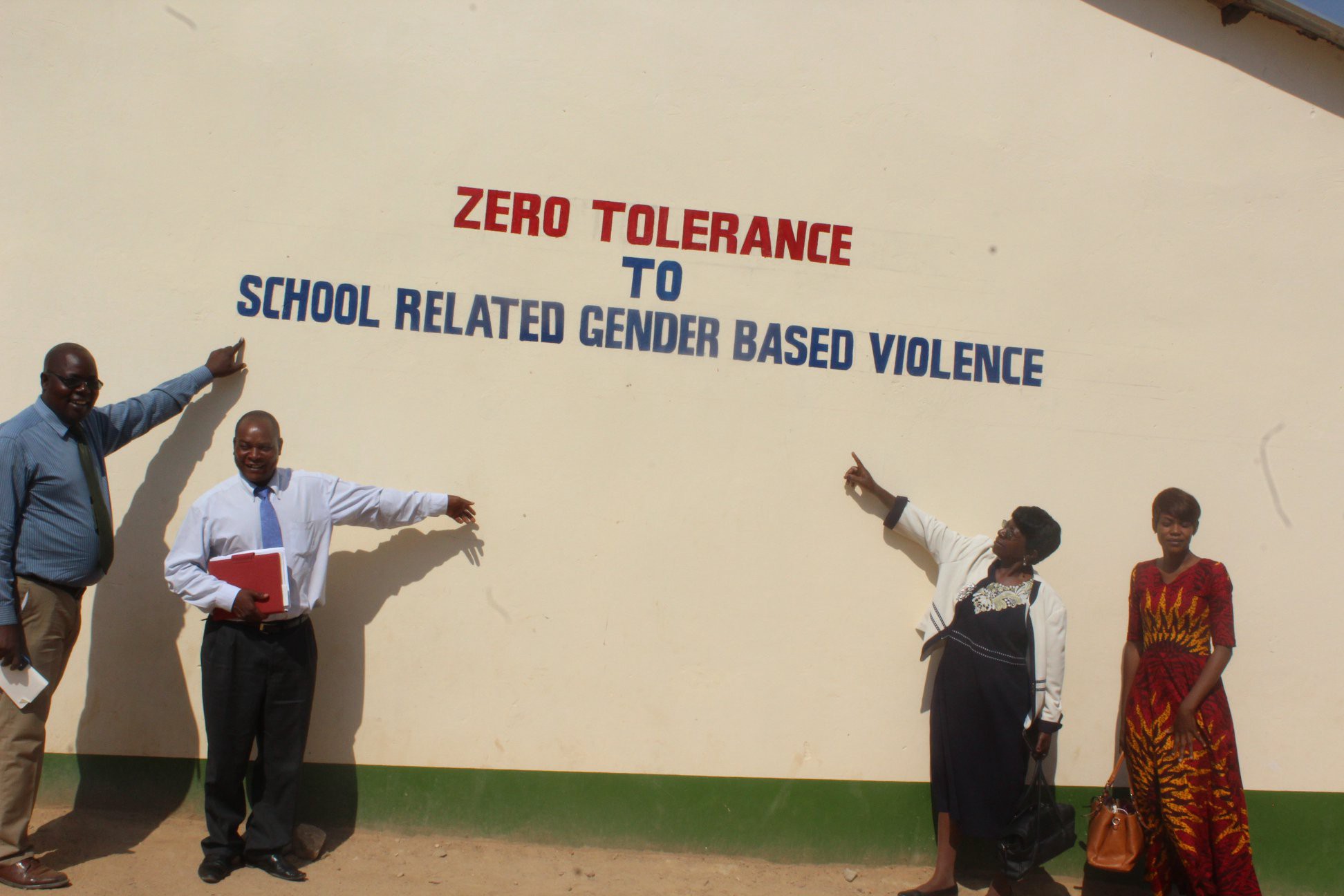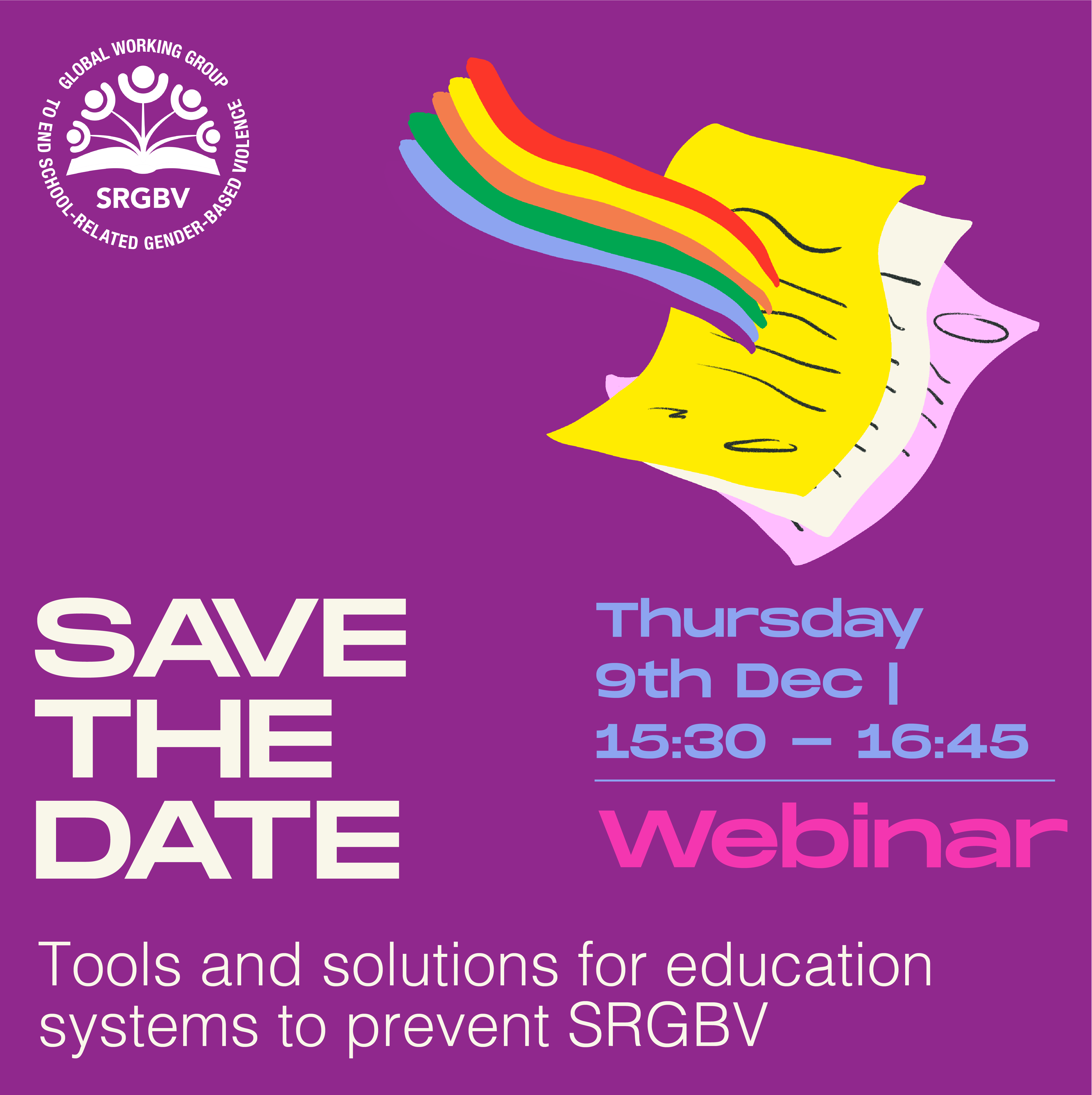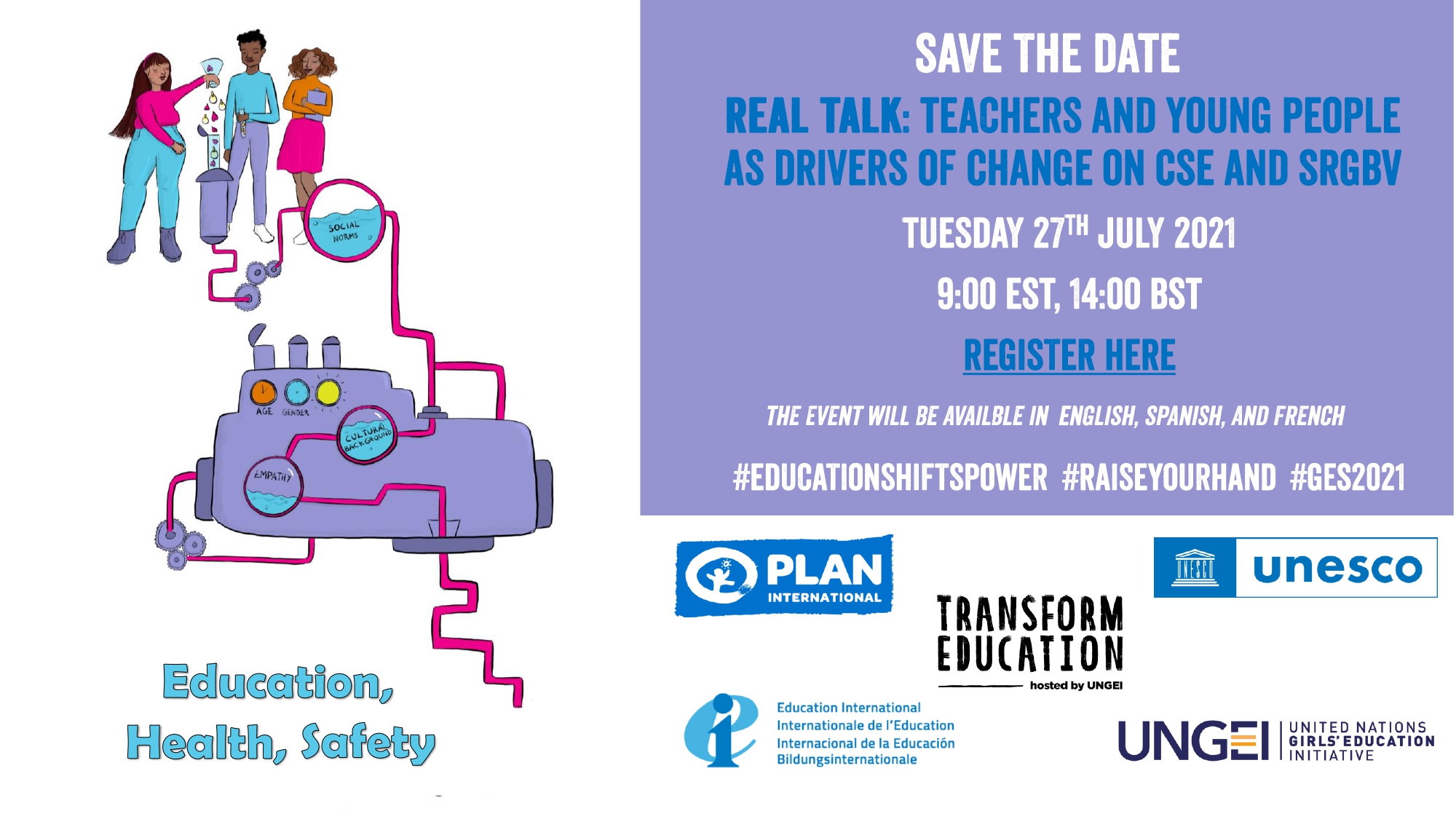For a long time, Africa’s education systems reflected the accepted gender roles in societies. This has carved a standardized socialization of how girls and boys, men and women should behave and approach situations. In typical African society, males are socialized to be powerful and domineering, as compared to females. This socialization of gender roles is further reinforced in schools, through language, teaching methodologies, learning materials and roles assigned to girls and boys in the classroom. In so doing, school environments can consciously or unconsciously reinforce the drivers of School Related Gender Based Violence (SRGBV).
SRGBV takes many forms; it could be acts of sexual, physical, psychological and economic violence occurring in and around schools as a result of gender norms and stereotypes and enforced by unequal power dynamics. These acts could be perpetrated among learners or by individuals in authority such as prefects, teachers, and school administrators among others.
In a bid to address the prevalence of SRGBV, the Forum for African Women Educationalists Zimbabwe Chapter (FAWEZI), in partnership with Miske Witt Associates International (MWAI) and United Nations Girl’s Education Initiative (UNGEI), piloted a Whole School Approach in 10 schools (5 Chitungwiza, 5 Shamva Districts) in Zimbabwe.
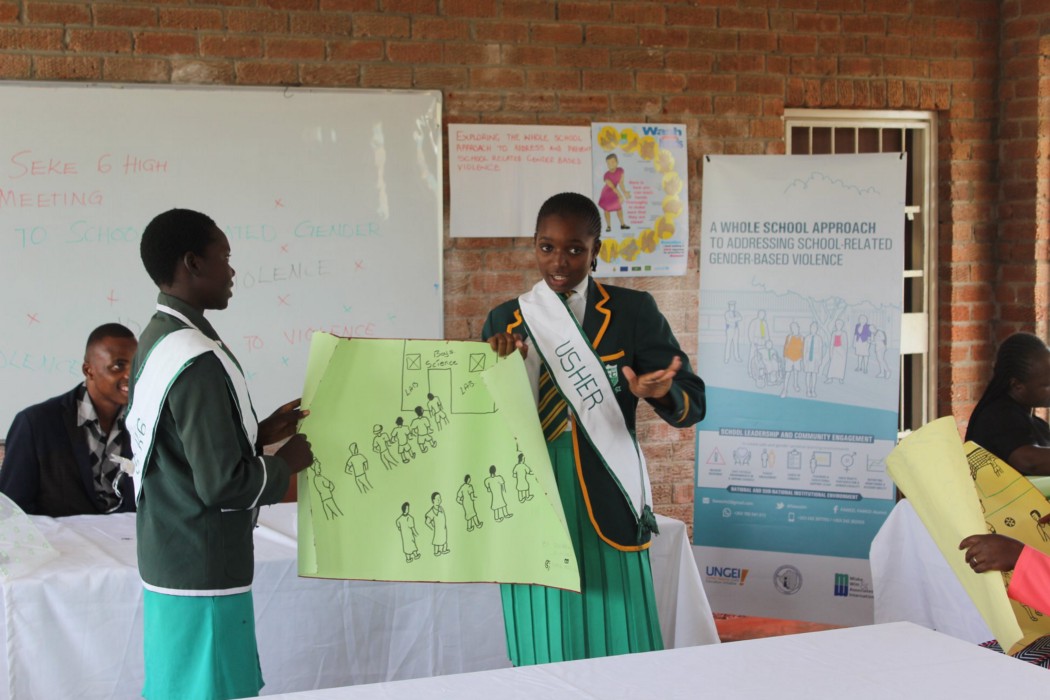
During FAWEZI’s discussions with teachers, they admitted that physical, sexual, verbal and emotional forms of violence are quite common in their school environment.
“Some forms of SRGBV are so subtle that one cannot identify them unless they attain a deeper understanding of the issue. Never had I thought that sitting arrangements and language use may be so offensive to learners to the extent of pushing them out of the classroom”.
Kumbirayi Tendekayi Mawoyo, teacher at St Aidan’s Primary School, Chitungwiza
The whole school approach aims to strengthen the capacity of school leadership, parents, teachers and students in establishing a safe and inclusive learning environment. The approach includes developing and strengthening in-school policies and procedures, training and capacity building, as well as building school-family-community partnerships.
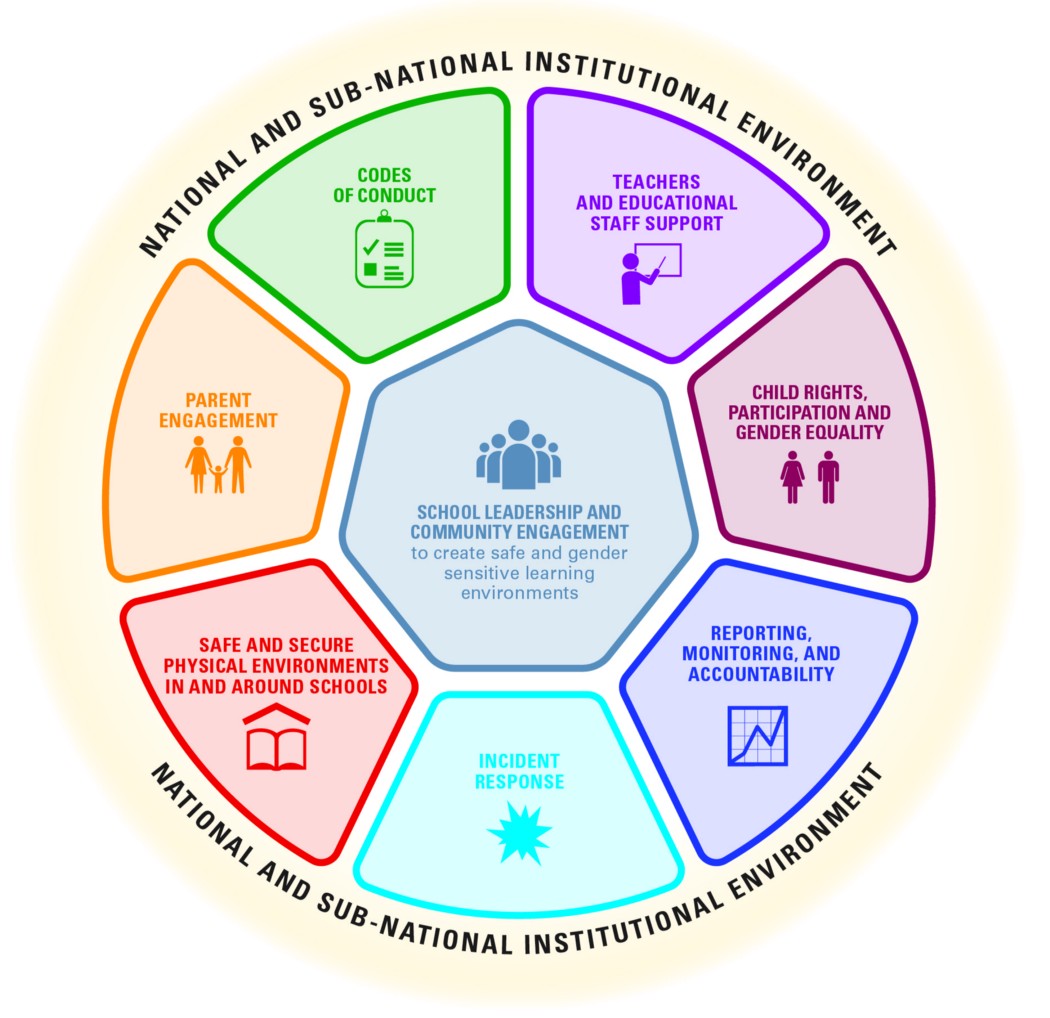
As part of the pilot, teachers and school heads from the pilot schools were taken through intensive training in identifying and addressing SRGBV and in Gender Responsive Pedagogy. Through the training, many of the teachers have realised how deeply rooted SRGBV is in their schools. They were able to recognise occasions when they had unknowingly perpetuated SRGBV via name calling, labelling, negative comments to learners during class and discriminated between girls and boys in the school environment and assigned activities.
The participating schools have since developed School Codes of Conduct bearing definitions on all forms of SRGBV including referral and reporting systems of incidences of SRGBV. The guidelines also take steps towards reducing SRGBV at all levels by monitoring the conduct of all school stakeholders. This includes peer to peer relations, teaching and non-teaching staff conduct with learners. Pre- and post- evaluations conducted by partners have indicated that teacher perspectives in the select schools have shifted from being gender- blind to gender responsive, leading to increased identification of incidents of school-related gender-based violence.
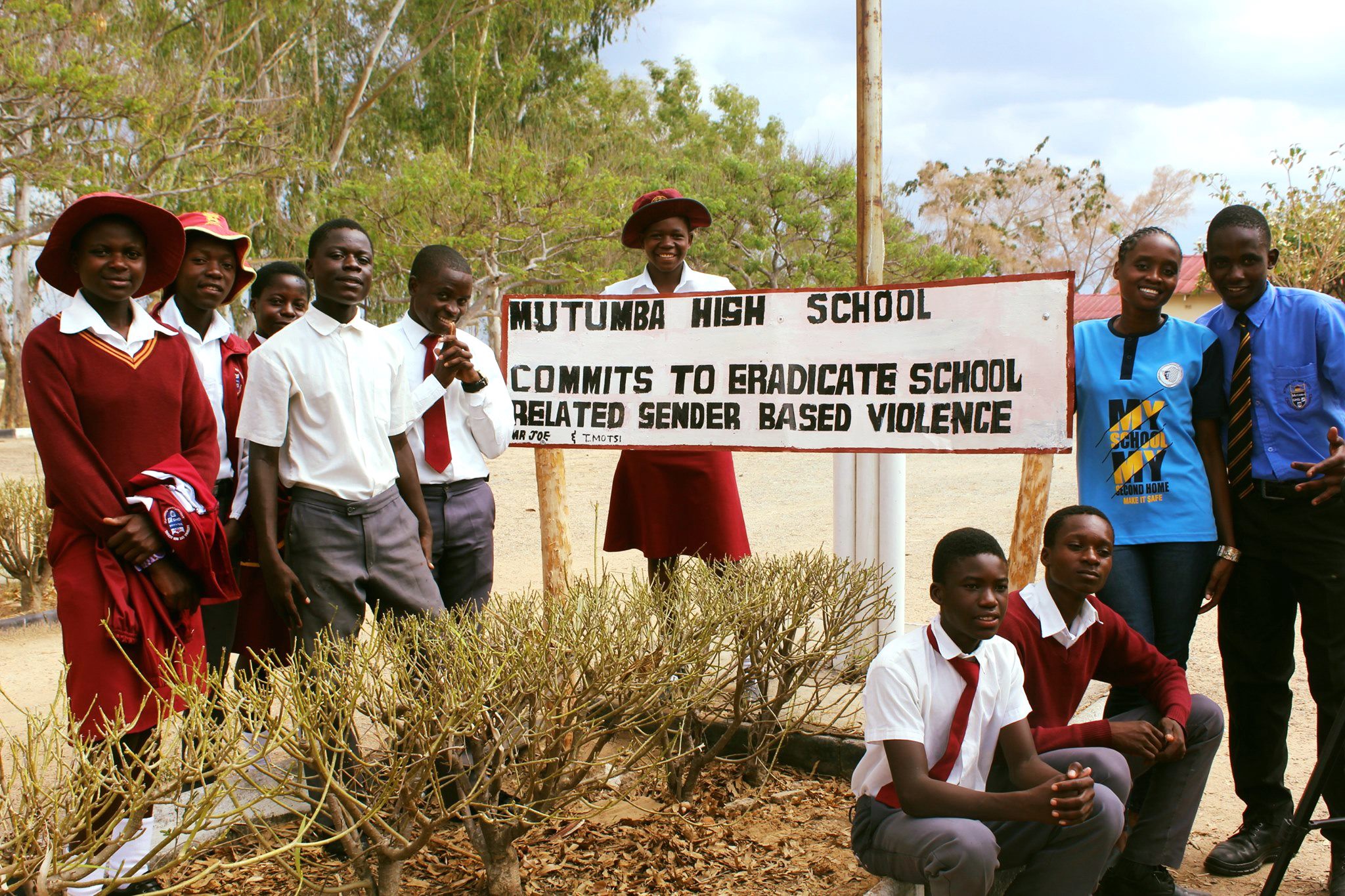
To truly eliminate violence from our schools, we must work together as a school community to address its root causes. The whole school approach supports teachers and education personnel to reflect on their own gender biases, and how they manifest in the classroom environment. When all stakeholders are included in the training, execution and evaluation of the activities, this initiative has the potential to truly transform the teaching approaches and general interactions between school leaders and learners and ensure that environments are safe, inclusive, gender responsive and conducive for learning.
This 16 Days campaign, we join the global community in demanding an end to gender-based violence around the world. We call for:
- All governments to prioritize prevention and response to SRGBV as a result of school closures and to integrate this in the agenda for all COVID-19 response actions.
- Education Sector Plans to include strengthening of existing systems and policies for responding to violence in schools with particular consideration to the impacts of humanitarian crises and emergencies.
- Pre- and in-service training of teaching and non-teaching staff to include training on their role in addressing harmful social and gender norms and evidence-based strategies to identify, respond to, and prevent SRGBV.
- Physical, social and academic environments within schools to be gender responsive; providing safe spaces for learners to interact without fear of threats or acts of SRGBV.
